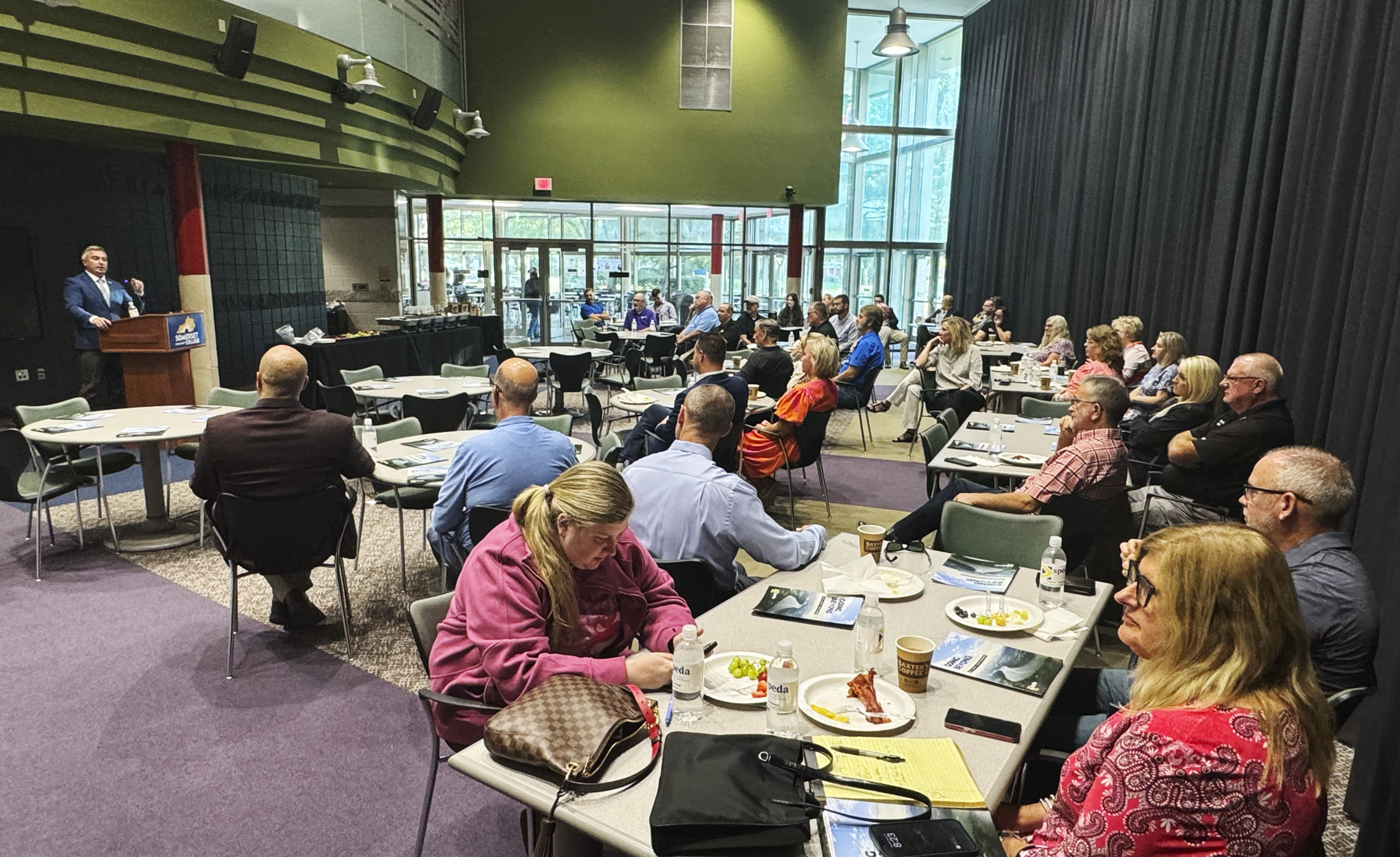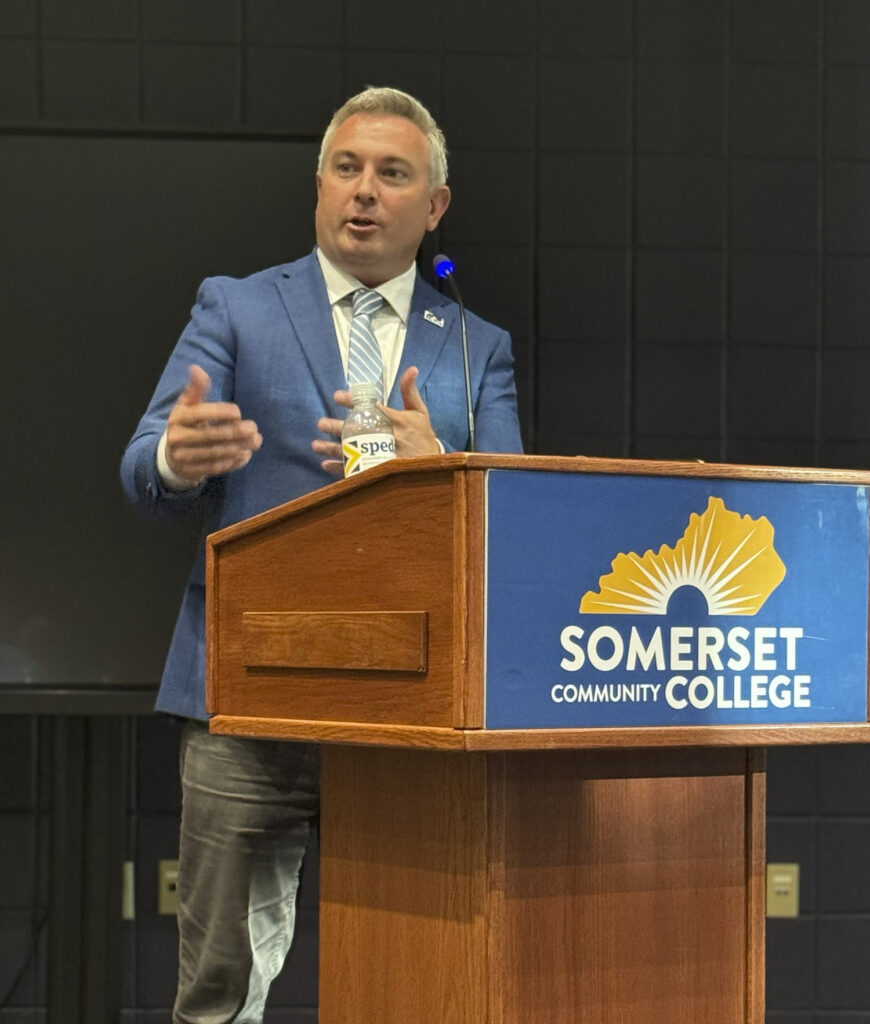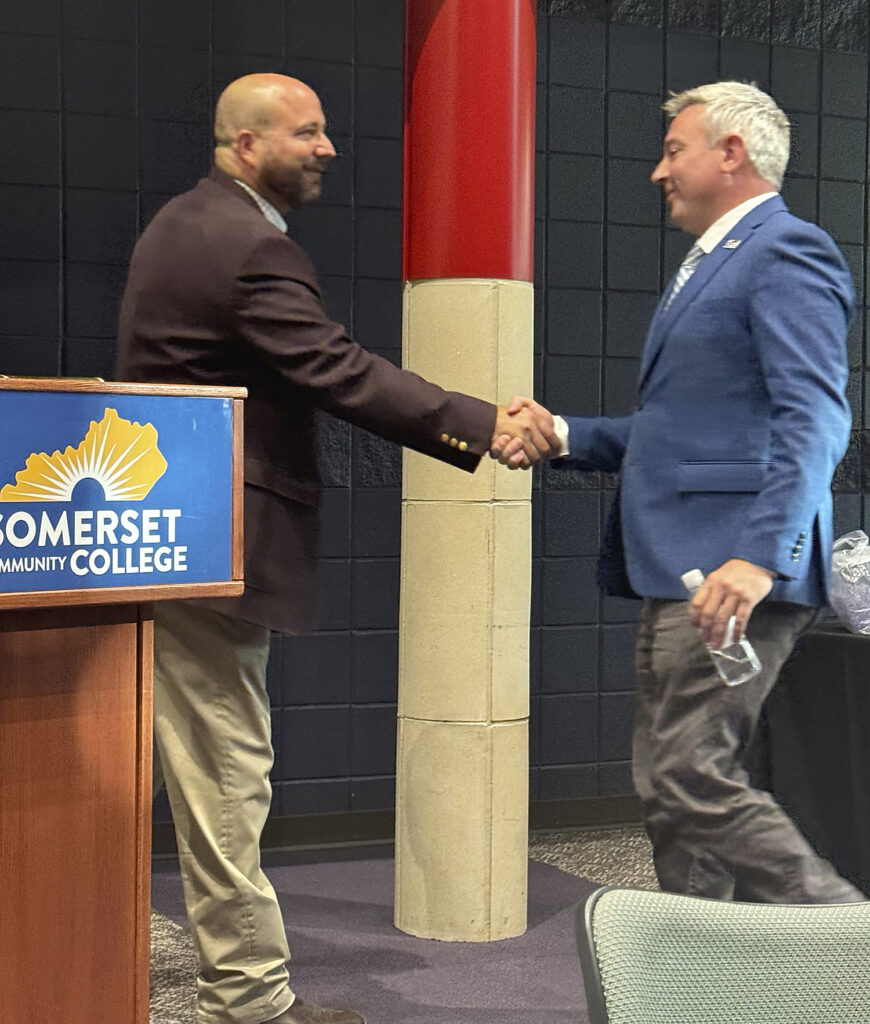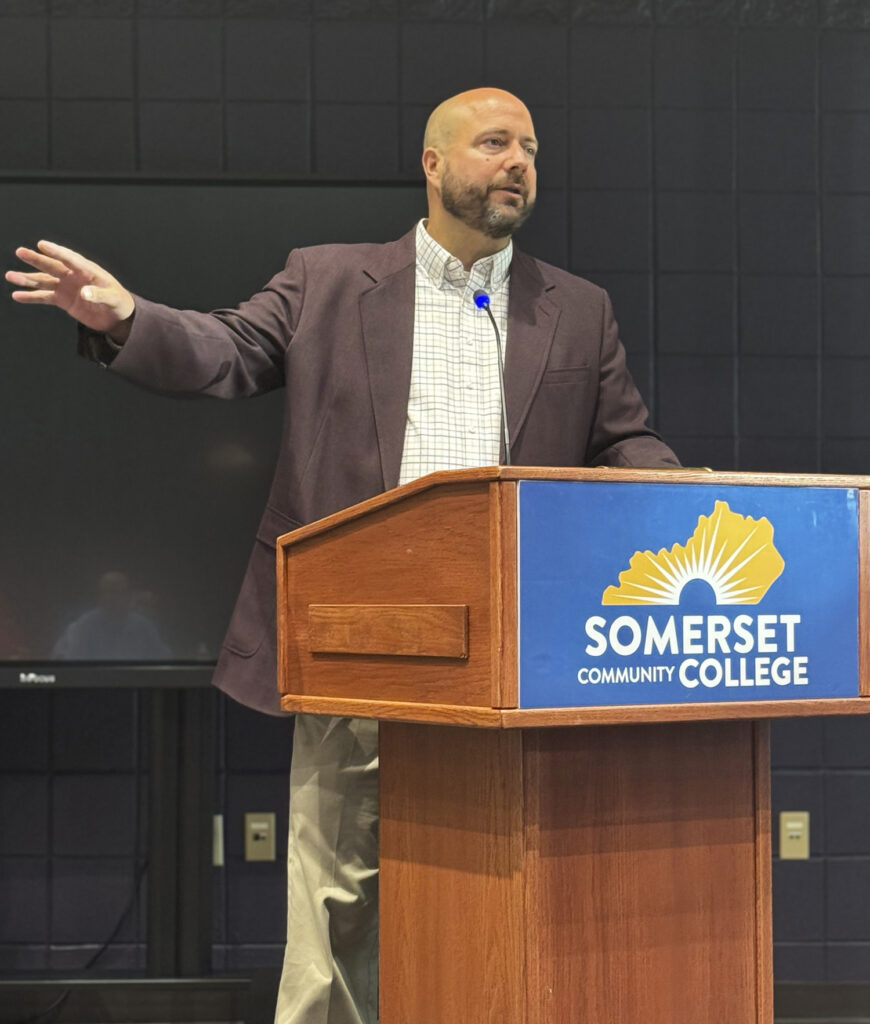Dr. Ryan Quarles explains how access, affordability and workforce development drive his vision for community and technical college education
Kentucky Community and Technical College System (KCTCS) President Dr. Ryan Quarles grew up on a tobacco farm in central Kentucky.
“Anybody here work in tobacco?” he asked a crowd of 35 gathered inside the Hal Rogers Student Commons at Somerset Community College on Aug. 15. About three-quarters of the audience raised their hands.
“That’s what we call a motivator,” Quarles said, to which the crowd audibly agreed.
The audience members attending last week’s Somerset-Pulaski Economic Development Authority (SPEDA) quarterly Industrial Leaders Breakfast represented 14 local companies. SPEDA introduced this series five years ago to bring business and industry leaders from across Pulaski County together to discuss their needs, explore the issues affecting them and hear ideas for enhancing economic development efforts. The Industrial Leaders Breakfast has featured speakers ranging from experts in forever chemicals to state legislators and influential members of Kentucky’s business community.
“The idea for the Industrial Leaders Breakfast was born from our desire to put existing businesses first,” SPEDA President and CEO Chris Girdler said. “Through this series, we have provided valuable education, had constructive conversations, made important connections, and, most importantly, listened. I hope our business leaders gain as much from these events as we do.”
Girdler said workforce development is a recurring theme from the breakfast series. Business leaders are eager to grow and strengthen the local workforce so that participation increases and companies thrive. That is what made Quarles such an important guest, he said.
“Dr. Quarles leads a community and technical college system that plays a crucial role in training Kentucky’s workforce of the future, and one of those institutions is right here in our community,” Girdler said. “With his rich educational background and passion for making Kentucky a workforce leader, he is the perfect person to be at the helm at KCTCS. I wanted our business community to hear his vision.”
Raised by first-generation college students — a nursing professor and a farmer — who instilled in him the values of hard work and motivation, Quarles learned early to love and revere education. While working as a farmer, Quarles earned seven degrees: a doctorate in higher education administration from Vanderbilt University, a master’s degree in higher education from Harvard University, and a juris doctorate from the University of Kentucky College of Law. He earned four other degrees, including two master’s degrees, from the University of Kentucky. He served in the Kentucky General Assembly as a state representative and as the Kentucky Commissioner of Agriculture before joining KCTCS.
“My passion has always been making sure that other Kentuckians — who perhaps didn’t have that supportive parent structure that I had, who maybe didn’t have a parent as an active teacher — have that same opportunity as anyone else,” Quarles said. “And that’s why I’m so thrilled that our community colleges are open access, meaning we’re a school for anybody and everybody who wants to improve themselves, and we’re proud of that fact.”
Quarles’s vision for the KCTCS system revolves around three core principles: access, affordability and workforce development.
He specified that access is more than just having 70 locations across the Commonwealth that students can drive to, having an online presence, or being in nearly all of the state’s high schools. It’s about meeting students where they are — whether that is helping young students earn an associate’s degree before they ever graduate high school, providing a path for non-traditional students who have been in the workforce to get a degree, or assisting Kentuckians seeking technical degrees, GEDs or who are in the recovery and rehabilitation space looking for a new lease on life.
Working alongside access is affordability. Quarles was proud to share that KCTCS is, on average, half the price of a four-year college institution across Kentucky. “But we’re also very sensitive about making sure we don’t price our way out of that access,” Quarles added.
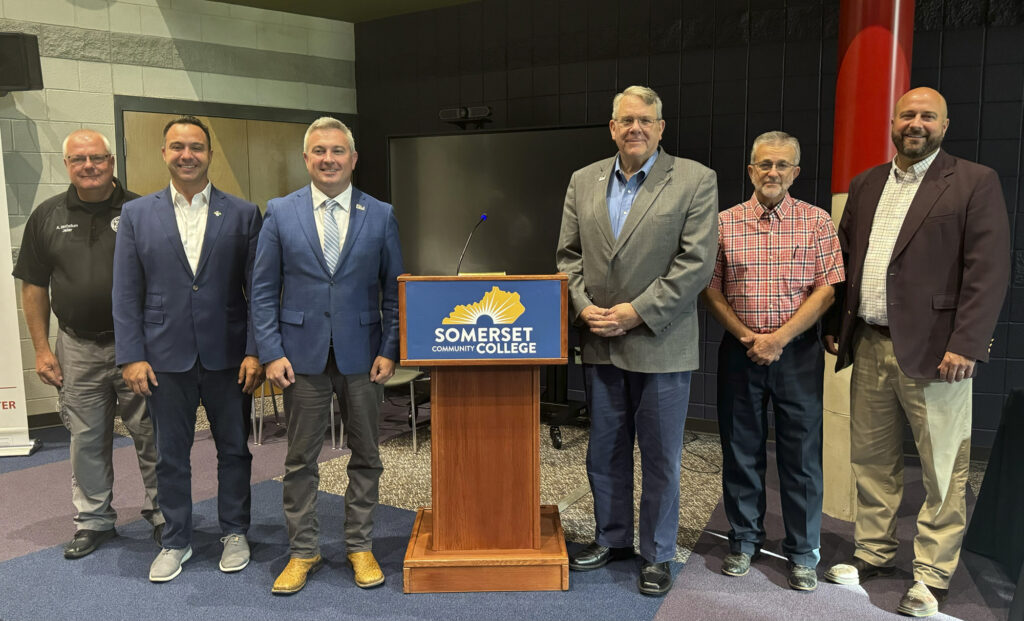
Unfortunately, higher education has gained the stigma of being too expensive and not worth the investment of time and money it takes to achieve the career it promises, Quarles said. So, he gave the audience homework to counter that narrative.
“Tell the story. We’re affordable. We have high-quality degrees and credentials, and we’re going to help you find jobs as well,” Quarles said.
And they do. Quarles said that one out of every 49 jobs in Kentucky goes to someone who trained at a community college.
“I think that our community and technical college system’s biggest tool in the toolbox is that job juggernaut to help upskill Kentuckians and get them into higher paying jobs,” Quarles said. “… every semester, we have 20-year-old Kentuckians who get a starting salary of $70,000, $80,000, in some cases, a starting salary of $100,000 or more. And so when someone’s starting salary going through our program is better than what their parents are making at home, that’s a good way to smash that stigma.”
In closing, Quarles expressed a view he has expressed many times on the campaign trail — that he is tired of Kentucky being the punchline in national jokes, ranking last on issues it should rank first on and vice versa.
“I’m a firm believer in what my mom told me when I was a kid, that education is a great equalizer in life,” Quarles said. “That’s a common quote, cited often across higher education. And if you work hard enough, study hard enough, and if you’re motivated enough to have to cut tobacco in August, you can go anywhere in life. If you work hard.”
